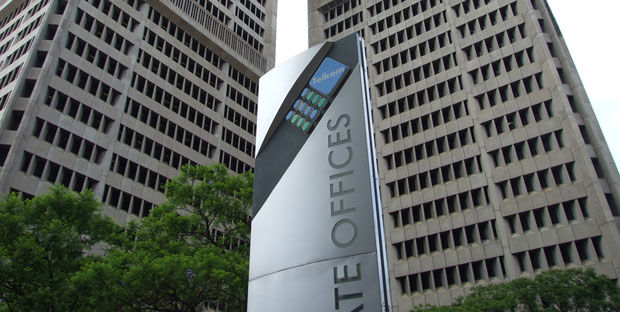
In the wake of cabinet’s rejection of KT Corp’s attempt to purchase a 20% stake in Telkom, reports now suggest the move was a precursor to the state taking full control of the company.
Business Day reported on Tuesday, quoting a department of communications source, that Telkom’s delisting and renationalisation were expected to be a key discussion point at the ANC’s national policy conference in Midrand next week.
Government already owns just shy of 40% of Telkom, with the state pension fund administrator, the Public Investment Corp, holding a further 10,9%.
Trade unions, including Cosatu and its affiliate, the Communication Workers Union (CWU), have come out in strong support of the decision to block the KT Corp deal and in support of nationalisation.
“It is a long-standing policy of ours that all strategic companies should be under complete state control and Telkom is one of those,” says Cosatu spokesman Patrick Craven. The CWU, meanwhile, says telecommunications is a strategic sector that should be “firmly under state ownership and control”.
But Free Market Foundation director Leon Louw says nationalising the company would mean that “every cent spent on renationalising Telkom, and then — as tends to happen in instances of nationalisation — subsiding it, is a cent taken away from welfare, housing, education, infrastructure or any of the other things that are more in need of government spending”.
He says nationalising a company like Telkom makes little sense because it results in the diversion of money from places where it is sorely needed.
“Moves like this don’t cost the taxpayer,” says Louw. “You can only take so much from taxpayers; rather it costs the poor because it diverts revenue from things that would better serve them.”
Louw says it would be “astoundingly perverse” for government to allocate money to buy back Telkom. He adds parastatals tend to run at a loss and are inefficient. “The same would be true of [a nationalised] Telkom,” Louw says. “Why would the state want to fund people who can afford private telephones?”
He adds that private entities, like SA’s mobile operators, are “extrordinarily efficient”.
“When the private sector is willing to provide a service, government shouldn’t be in the space at all.”
Louw says government should focus on regulating the market, but “shouldn’t regulate rates, prices and tariffs. It’s important that it doesn’t.”
According to Louw, the move also flies in the face of global trends. He says it’s a prerequisite of European Union membership that a state have demonstrable telecoms freedom.
“It’s screechingly obvious that the one thing government doesn’t have to do is be involved in a private sector that’s working, like telecoms,” says Louw. “It’s like saying [government] should run restaurants.”
Denis Smit, MD at consulting and research house BMI-TechKnowledge, says from government’s perspective, nationalising Telkom may appear to be a good idea if it is adamant about building a national broadband network.
He says Telkom could be unbundled and restructured into wholesale and retail businesses. “Government can get control of network assets and could exit the retail business in the process.”
In such a scenario, it would, however, be crucial that the wholesale aspect of Telkom’s business be carefully regulated. Theoretically, Telkom’s retail division could then become a client of Telkom wholesale, with the former operating like a private entity and the latter like a state-owned business.
Chantel Lindeman, business unit leader at analyst firm Frost & Sullivan, says she can’t see the reasoning behind a move towards nationalisation. She says state-owned Sentech and Broadband Infraco were intended as government’s means of increasing connectivity and wonders why its attention has returned to Telkom.
“Why take a commercial entity that is bringing in at least some investment and nationalise it?” Lindeman says. “Telkom Business has some good products and was getting its message together. The 8ta offering needs fixing, but the company has been driving new initiatives and has appeared to have a sense of direction over the last year.”
Lindeman says nationalisation raises all sort of worrying questions about Telkom’s independence and whether such a move would help to liberalise SA’s telecoms sector.
“It’s not clear whether [nationalisation] would be in the best interest of the country as a whole or only of government and its goals,” she says. — (c) 2012 NewsCentral Media




